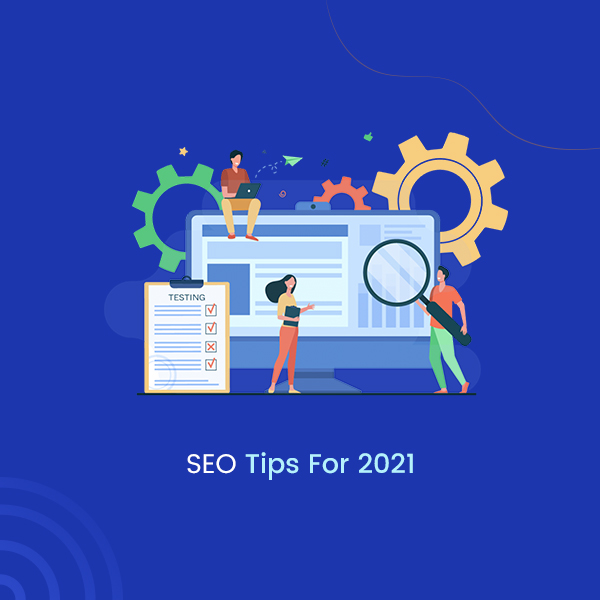
Here, experts offer Five tips on how to use SEO to
maximize your content marketing investments.
1. Keywords aren’t the be-all and end-all
Including keywords in headlines is becoming less important, Shepard says. “Google has gotten better about interpreting meaning. It used to be that if you wanted to rank for ‘best restaurants,’ you had to say ‘best restaurants’ three or four times. It’s still helpful to mention ‘best restaurants,’ but the semantic meaning is becoming much more important. Now you can just talk about great dining experiences, and the search engines will pick up on it.”
Adds Laetsch: “Historically, we wanted to get a keyword in the body copy or in the meta description. Now that’s all gone out the window. As the search engines get smarter, they start to think about other words that you expect to be in that article, what will signal that this is an authoritative article on the topic. If you were writing an article about the Apple Watch, you might have the words ‘Apple,’ ‘iPhone,’ ‘Watch,’ ‘apps’ and ‘time.’ If those are in the body copy, it sends signals to the search engines that this is a pretty good article.”
Seventy-five percent of search queries are between three and five words long, so you should write headlines accordingly, he adds. “The search engines are figuring out that if people search for the word ‘marketing,’ or any one- or two-word query, they don’t get the results they want. To get quality results that are most likely to answer their question, they have to go to three-, four- or five-word queries. As content creators, when you’re thinking about optimization, you have to think about that.”
2. Focus on the user experience
“Google, right now, is making 500 algorithm changes a year,” Laetsch says. “Every change is focused on making sure that when someone searches on Google, if they get the right result on the first few pages, they’ve got a great experience. It’s not, ‘How am I going to tweak the engine or trick Google, Bing or Yahoo?’ It’s how you make sure that your content is the best possible content on the Internet for the words that you care about.”
Thus, original content is becoming more important than ever, says Rhea Drysdale, CEO of Outspoken Media Inc., a Troy, N.Y.-based SEO consulting firm. “The more original content that you can produce—whether it’s an image or a video, or long-form content, anything you can put together that’s going to justify someone wanting to read it or share it—the better.”
While articles with a “top five” list format often are clickable, Drys dale suggests using them sparingly. “People like things that they can quickly digest, but it doesn’t necessarily have much weight with search,” she says. “You have to make sure that whatever comes after the number makes sense and is useful.”
Create an editorial calendar to appeal to your customers’ interests, Laetsch says. “That’s the most important thing that a marketer can do for SEO in 2021. Your content has to be original and targeted to your audience. If you curate content, take a paragraph from another article or site, and give them full credit and add an attribution, but add a paragraph or two in your own voice: ‘Here’s why I think it’s relevant.’ You’re adding a journalistic voice and making it your own.”
3. Size matters
Longer articles, between 1,200 to 1,500 words, perform better in search, on average, Laetsch says. “It’s significantly different than it was two or three years ago, when 300 words was a pretty long page. Longer articles are getting more traffic, and they’re ranking higher in SEO, especially for competitive terms. The changes that Google is making, and the reason they’re making these changes, is to make sure they’re sending traffic to pages that delight humans.” He suggests breaking up long-form content with subheads, bullet points and images throughout the copy to make it easy for readers to more quickly scan and digest it.
Longer articles perform better in search results because there are more words and images to rank on the page, Shepard says. “People are sharing longer articles on social media more, and linking to them and citing them more. Shorter articles do well sometimes, but on average, longer articles tend to perform better.”
4. Optimize for mobile
More people are reading news on their smartphones, so it’s important to ensure that your content is searchable there, says Derek Edmond, managing partner and director of SEO and social media strategies at Marketing Associates, a Boston-based B-to-B SEO and social media marketing consultancy. “Making sure Google can understand the content that’s found within a mobile app, and leveraging the marketing of the app with respect to SEO, is an opportunity on the consumer and B-to-B marketing side.”
5. Intention is everything
You no longer need an exact keyword to offer a relevant search result, says Cyrus Shepard, director of audience development at Moz. “In the old days, it was about getting the click. Now search engines are seeing how people are interacting with your website: Are they going back and clicking on results, or are they finding the answers they’re looking for when they’re on your site? Today it’s about the post-click activity. Not only do you have to get the clicks, but you have to satisfy user intent.”